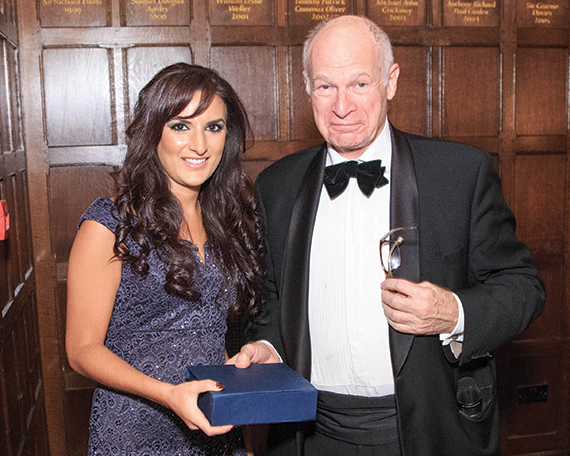 Erina Kourtis, winner of the Property Litigation Association’s first Alan Langleben Memorial Essay Competition, presents an abridged version of her winning entry, which calls for the law to be updated to protect purchasers from property fraud
Erina Kourtis, winner of the Property Litigation Association’s first Alan Langleben Memorial Essay Competition, presents an abridged version of her winning entry, which calls for the law to be updated to protect purchasers from property fraud
Fraudsters are looking for a way to “get rich quick” and the UK property market is a prime target for fraud. With the globalisation of property transactions and advances in electronic banking, more fraudulent transactions are slipping through the net.
However, the current law has not caught up with changes in property transactions and needs updating to provide greater protection for purchasers. More barriers must be put in place to catch fraudulent transactions and impose greater liability on those responsible for marketing properties to ensure the proposed sale is legitimate. Although regulation already exists for solicitors, requiring them to carry out Know Your Client and anti-money laundering checks, only very minimal regulation exists for estate agents.
Estate agents’ responsibilities
Estate agents should be the first significant barrier to fraud and, therefore, should carry out a higher level of identity checks on sellers than is currently being required. The following changes could be implemented to reduce the risk of fraudulent transactions and provide greater protection to property purchasers:
- Impose a legal duty of care. The law should be reformed to impose a duty of care between estate agents and purchasers as it is fair, just and reasonable to impose such a duty, particularly because property purchasers rely on the assurances of estate agents that the property is being sold legitimately.
- Introduce legislation to oblige estate agents to carry out due diligence. As well as the Money Laundering Regulations 2007, which should continue to be complied with by both estate agents and solicitors, there ought to be legislation introduced to require estate agents to carry out a greater level of due diligence of sellers than is currently required by law. This would create a two-tier due diligence system with both estate agents and solicitors carrying out their own due diligence for property transactions. Such legislation would require estate agents to carry out due diligence as to the identity of the seller before marketing a property. This could include meeting with the seller, obtaining a copy of the seller’s passport, utility bills and bank statements and completing a questionnaire that requires the seller to confirm when the property was purchased, whether it has been rented and whether other third parties (such as contractors) have access to keys to the property. These investigations will assist in determining whether the property is being sold legitimately and raise red flags where further checks are needed.
- Update the guidance. The National Federation of Property Professionals’ Money Laundering Guidance could be updated to require estate agents to carry out their own due diligence and not rely only on the due diligence of solicitors.
While good due diligence reduces the risk of fraud, it is unlikely to eliminate it. However, the more checks required, the more likely it is that a fraudster will be caught. Furthermore, by imposing a legal duty of care between estate agents and purchasers and requiring a higher level of due diligence, purchasers who fall victim to fraud may have an avenue to recover some of their losses by relying on the liability of estate agents.
These issues are highlighted in the recent case of P&P Property Ltd v Owen White & Catlin LLP and another [2016] EWHC 2276 (Ch); [2016] PLSCS 261, which demonstrates that the current law is not protecting victims of fraud.
In P&P, an imposter posing as the legitimate owner of a property in Hammersmith, Mr Harper, instructed Winkworth estate agents and solicitors Owen White & Catlin to sell the property. As the transaction was fraudulent, the proceeds of sale paid by the purchaser, P&P, disappeared when sent to the fraudster’s account in Dubai. Among a number of issues, the court considered whether Winkworth was in breach of warranty of authority and/or liable in negligence.
Breach of warranty of authority
In P&P, the court held that, although estate agents are required to carry out anti-money laundering checks, this does not mean they are impliedly representing that their client is the true owner. Therefore, Winkworth was not held to be liable for breach of warranty of authority.
Although estate agents are often at the forefront of property transactions, P&P demonstrates the gaps in the law when it comes to who is liable for a fraudulent transaction. Aside from P&P, there has been no case law that deals with claims for breach of warranty of authority in the context of estate agents. This illustrates that this area of the law needs clarification.
The court has suggested that the question of who has legal title to a property is a matter for solicitors, not estate agents. However, such an interpretation means that a property can be put forward for sale by estate agents without taking responsibility as to whether it is being legitimately sold by the legitimate owner.
Although estate agents are subject to anti-money laundering obligations under the Money Laundering Regulations 2007, such regulations are not enough to protect purchasers. Following P&P, it is clear that the court does not impose the same level of responsibility required of a solicitor on an estate agent. While this may be correct, there is scope for a certain level of responsibility to be imposed on estate agents through case law and legislation to require estate agents to carry out necessary due diligence.
Duty of care
For the court to impose such a responsibility on estate agents, it is important to consider whether estate agents owe a duty of care to purchasers.
There is often a close relationship between the estate agent and purchaser, particularly where the purchaser has been approached directly by the estate agent. Furthermore, there is an expectation by a purchaser that the estate agent would have carried out anti-money laundering checks and due diligence before offering the property for sale, ie that the estate agent is offering a legitimate proposal.
However, there is uncertainty in current case law as to whether or not estate agents owe a duty of care to purchasers. This issue was considered in P&P when deciding whether Winkworth was negligent in failing to carry out anti-money laundering checks. Applying the test in Caparo Industries plc v Dickman [1990] UKHL 2, the court assessed whether it is fair, just, and reasonable to impose a duty of care on estate agents for the benefit of potential purchasers. In short, the court held that Winkworth was not negligent and did not owe a duty to P&P.
This decision leaves property purchasers vulnerable because the current legal position means that purchasers do not have recourse against estate agents as there is no established duty of care between them. Therefore, the law needs to be adapted to bridge the gap between estate agents and purchasers.
Money laundering
Although the aim of the National Federation of Property Professionals’ Money Laundering Guidance (July 2011) is to protect against the risk of fraud, the due diligence requirements imposed on estate agents do not provide sufficient support for purchasers. Paragraph 2.4.22 of the guidance recommends that “if an… independent legal professional… has already conducted client due diligence, and provided they consent to being relied upon, an estate agent may rely upon them.”
The guidance appears to provide justification for estate agents to rely on third-party due diligence. If the guidance was amended to require estate agents to carry out their own due diligence, this would provide a greater level of protection to purchasers. Although there may be some overlap between the due diligence of solicitors and estate agents, requiring both to carry out their own specific searches would increase the chances of capturing fraud. Further, the due diligence required of an estate agent would not involve a search as to the legal title but more of an investigation as to the factual circumstances surrounding the proposed transaction and the physical identity of the seller.
A way forward
As the law currently stands, the picture is bleak for purchasers who are parting with substantial sums of money with no avenue for recourse if the transaction turns out to be fraudulent and the fraudster disappears.
By modernising the law and recognising that property purchasers must be better protected from fraud, the future for potential purchasers could be much improved. A more robust system must be put in place by imposing a legal duty of care between estate agents and purchasers and requiring a higher level of due diligence through legislation. Although constantly evolving, the responsibility of solicitors in property law is well established; it is therefore imperative that the law now also focuses on the responsibilities imposed on estate agents.
The Alan Langleben Memorial Essay Competition 2016
The Property Litigation Association’s inaugural essay competition is named in memory of Alan Langleben, an esteemed solicitor and long-server on the organisation’s law reform subcommittee, who passed away in February this year. Open to all PLA members, it attracted a “very high” standard of entry, according to Suzanne Lloyd Holt, retired head of property litigation at Gowling WLG, who chaired the panel of judges.
Praising the winner, she said: “Erina was chosen for producing what was the most thought-provoking, innovative and challenging essay. Erina showed a maturity of approach and the ability to think laterally when looking at a legal problem.”
Holt added: “It says much for the calibre and thoughtfulness of the young people in our industry that Erina volunteered to donate her prize money to the North London Hospice, which cared for our friend and colleague Alan Langleben, the inspiration for our essay competition, in his final days.”

Erina Kourtis is an associate at Taylor Wessing LLP










